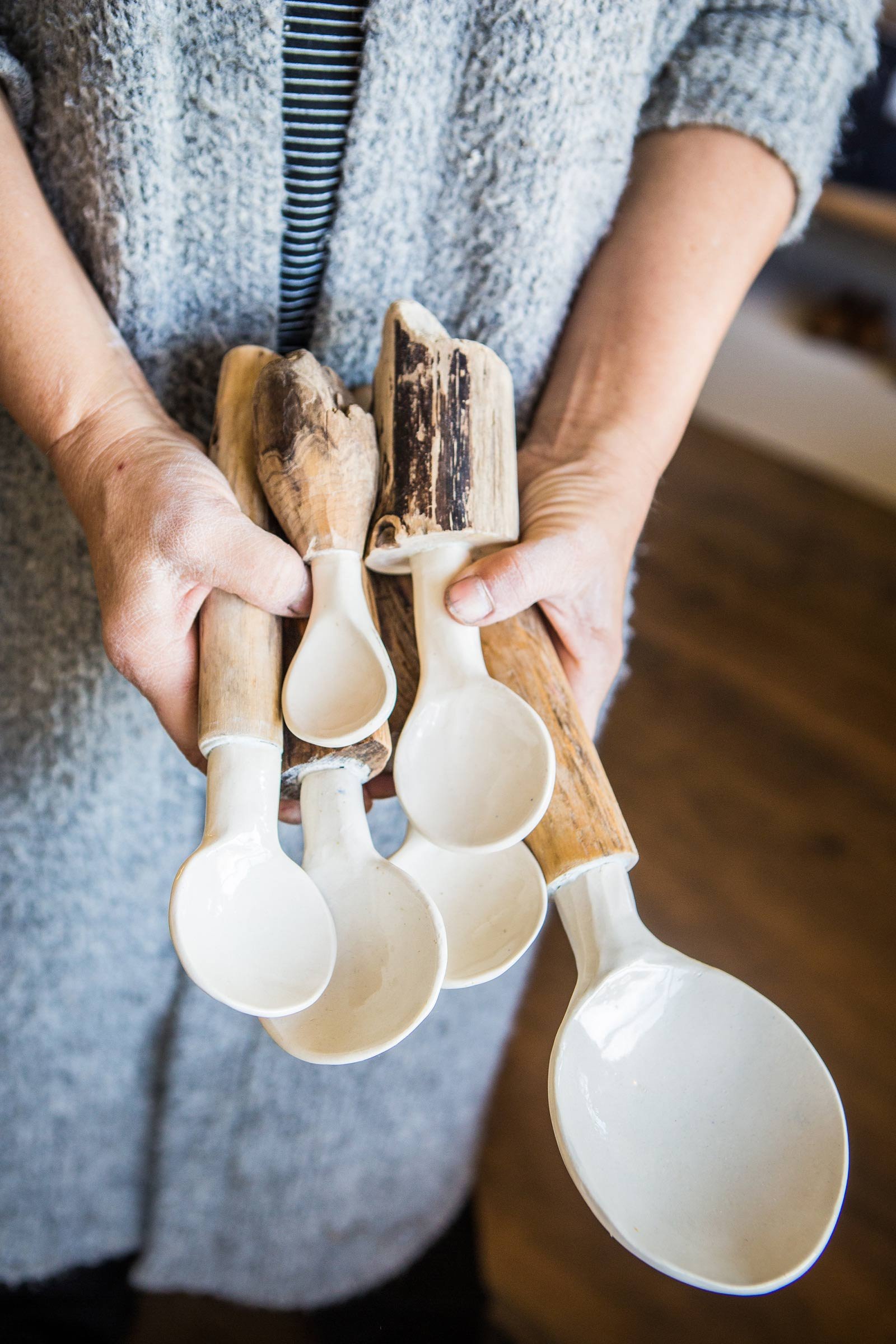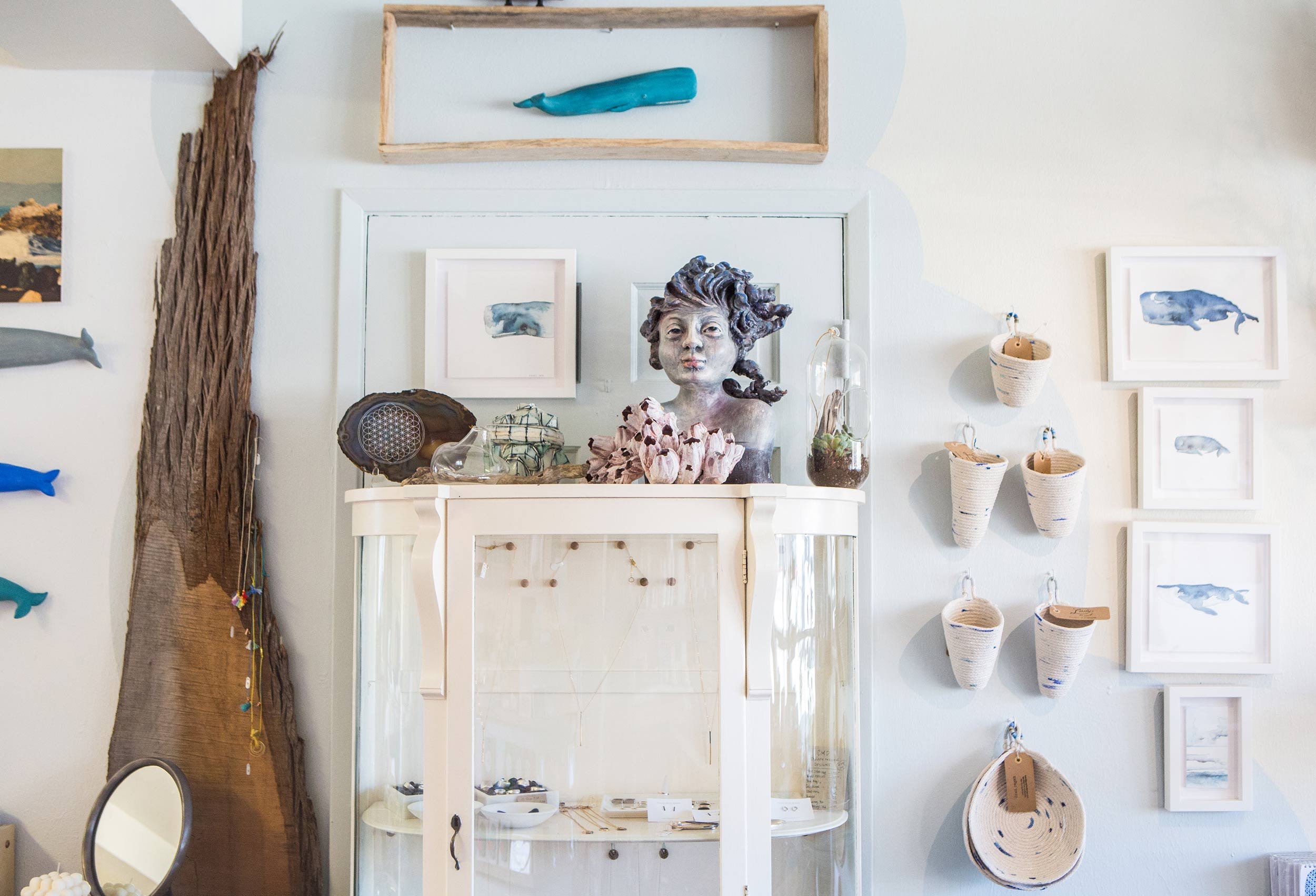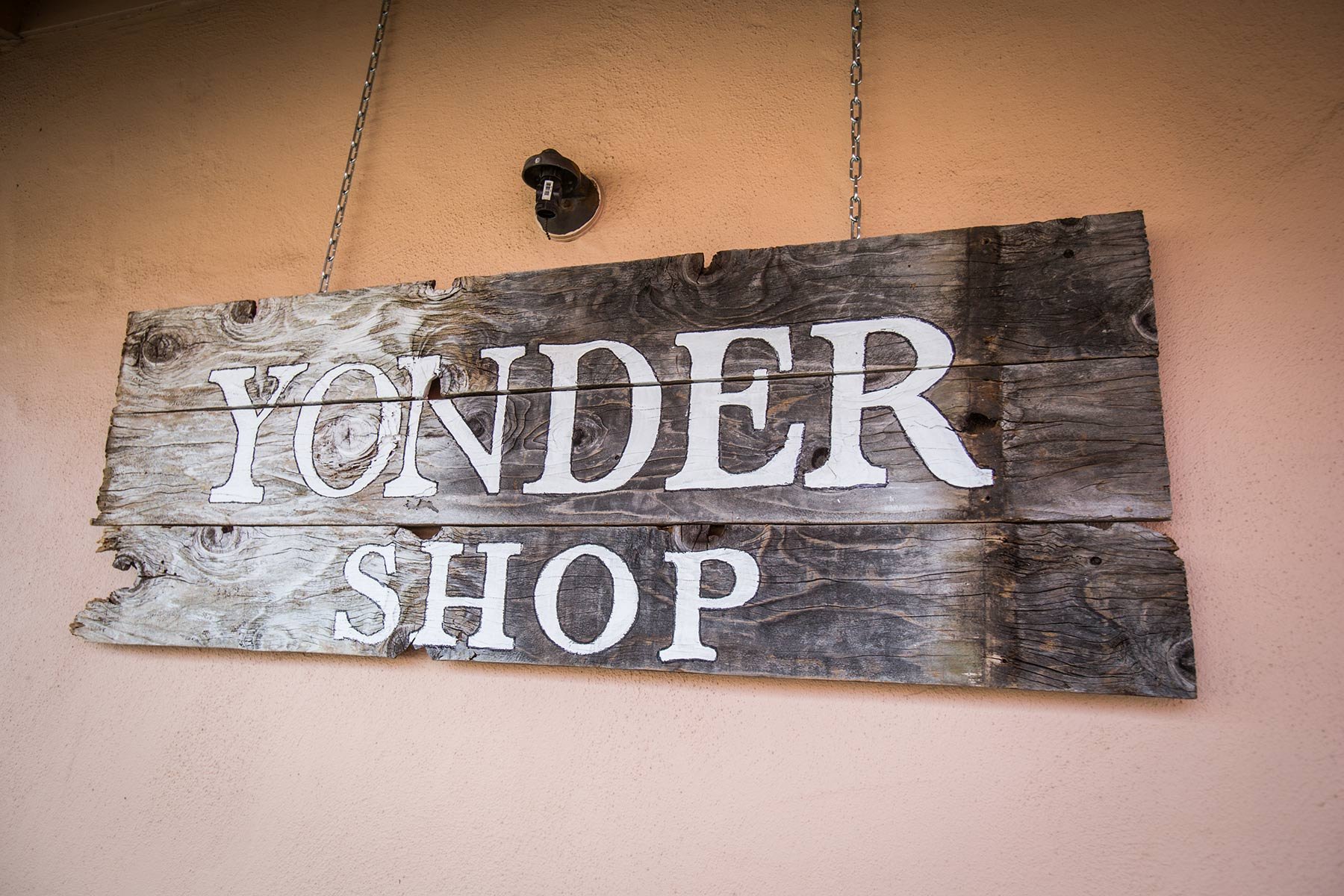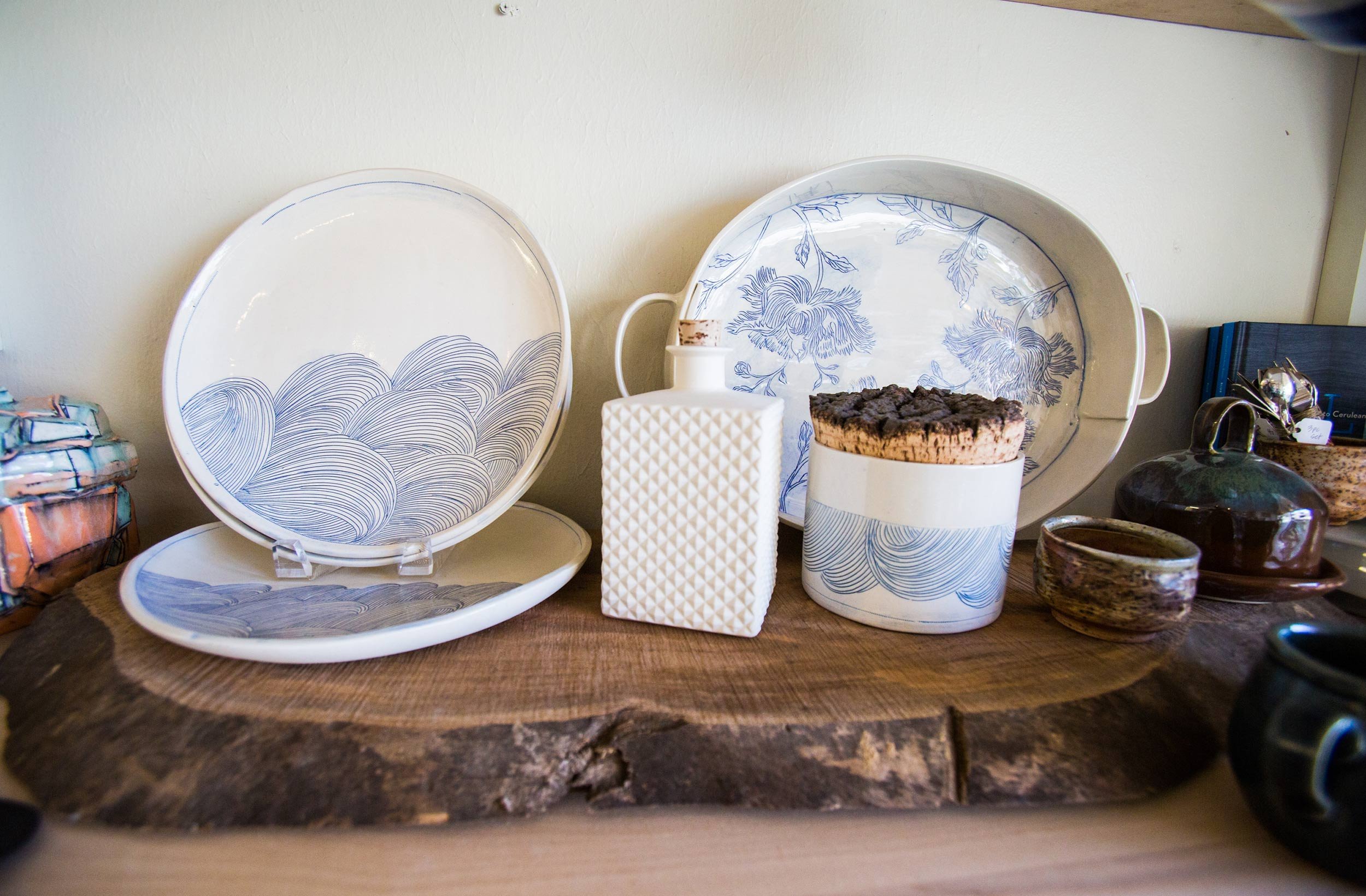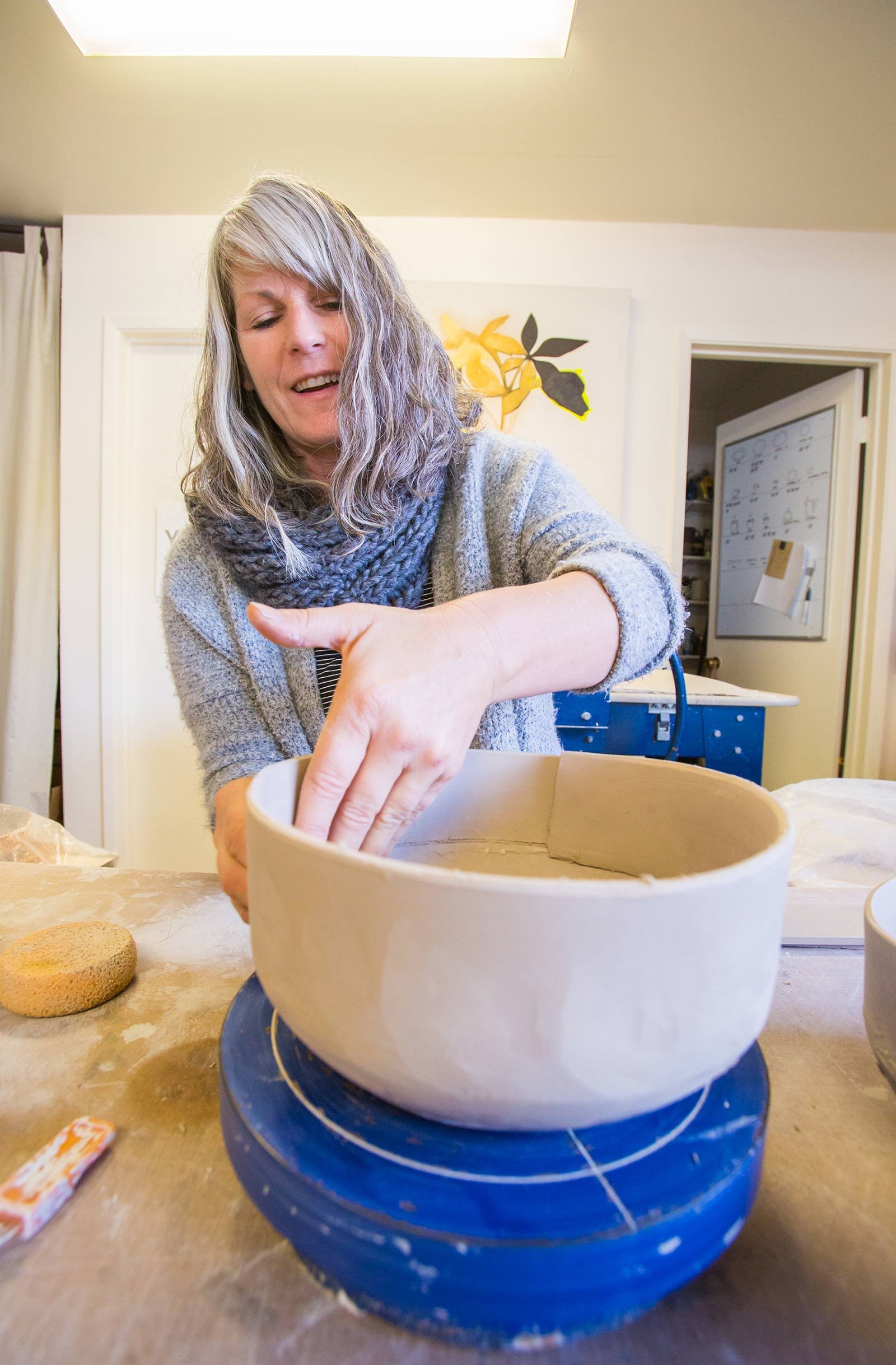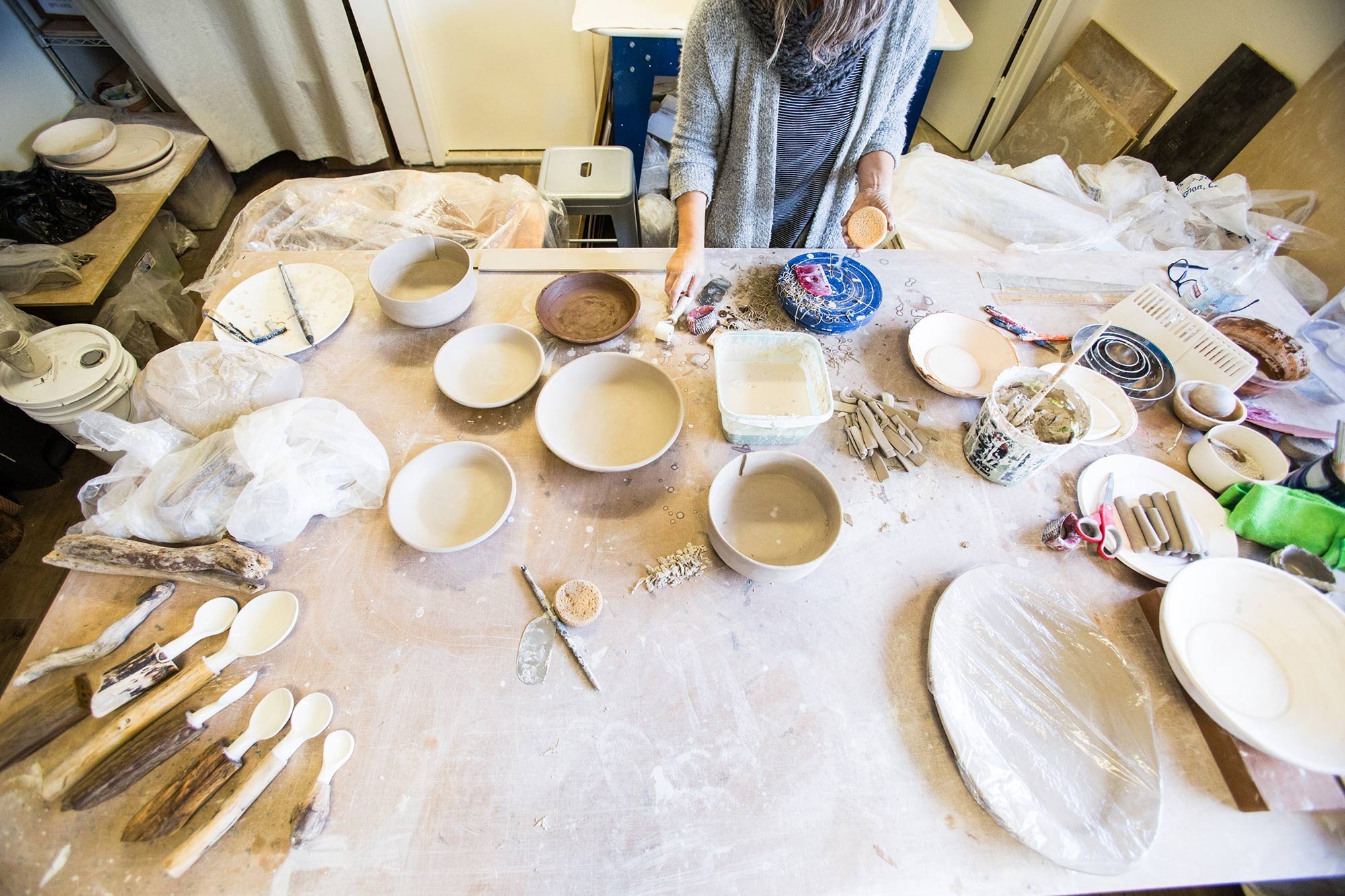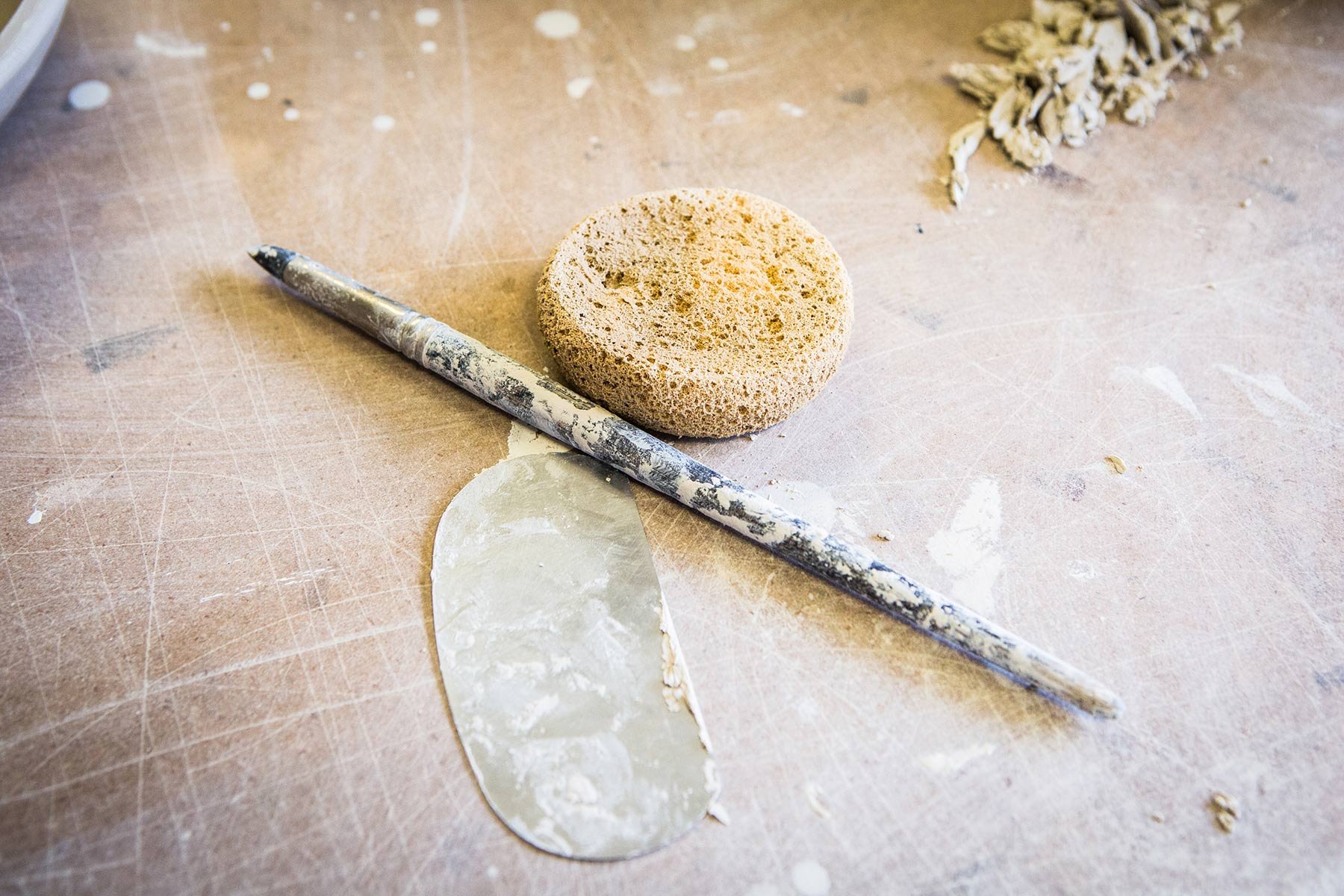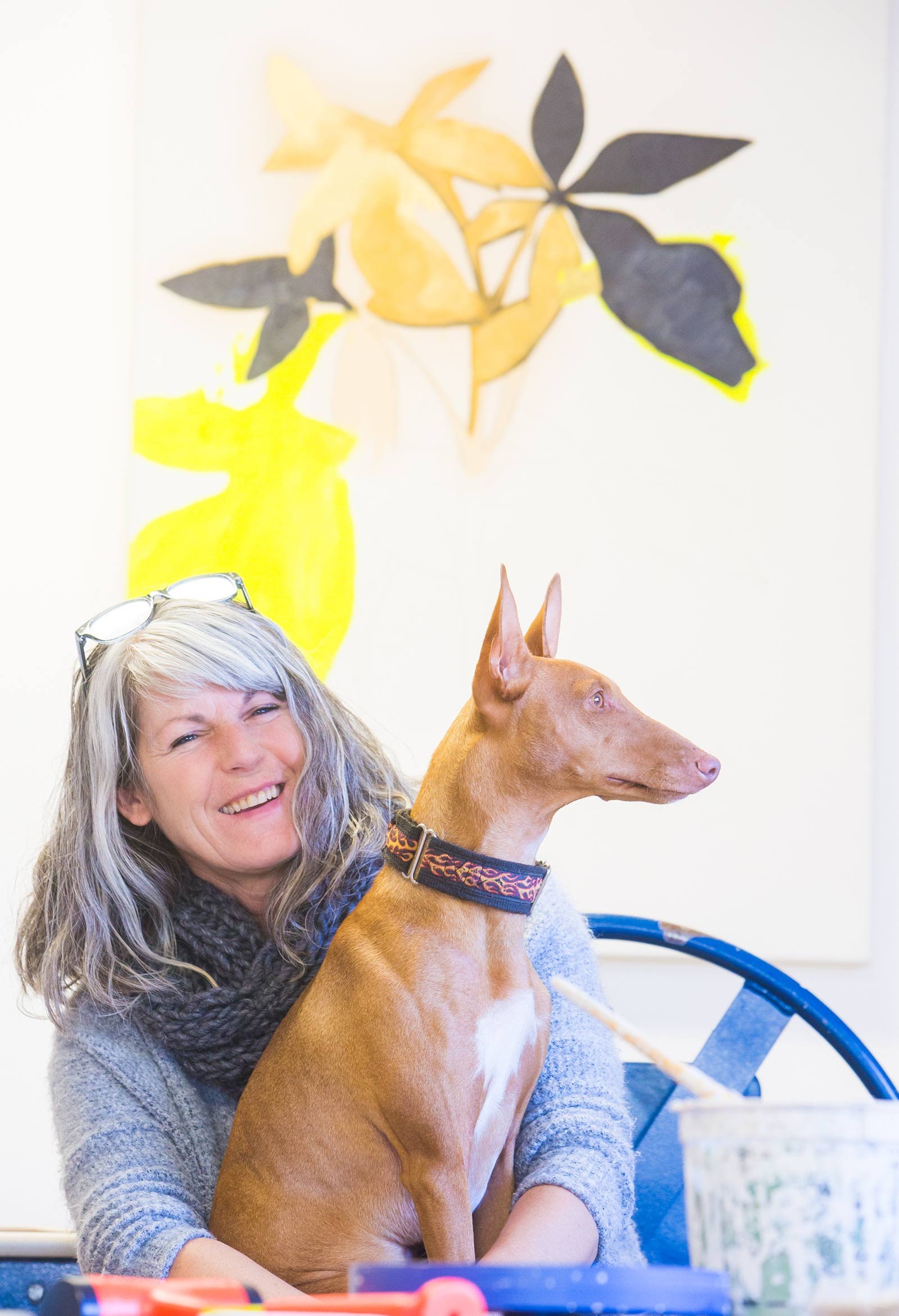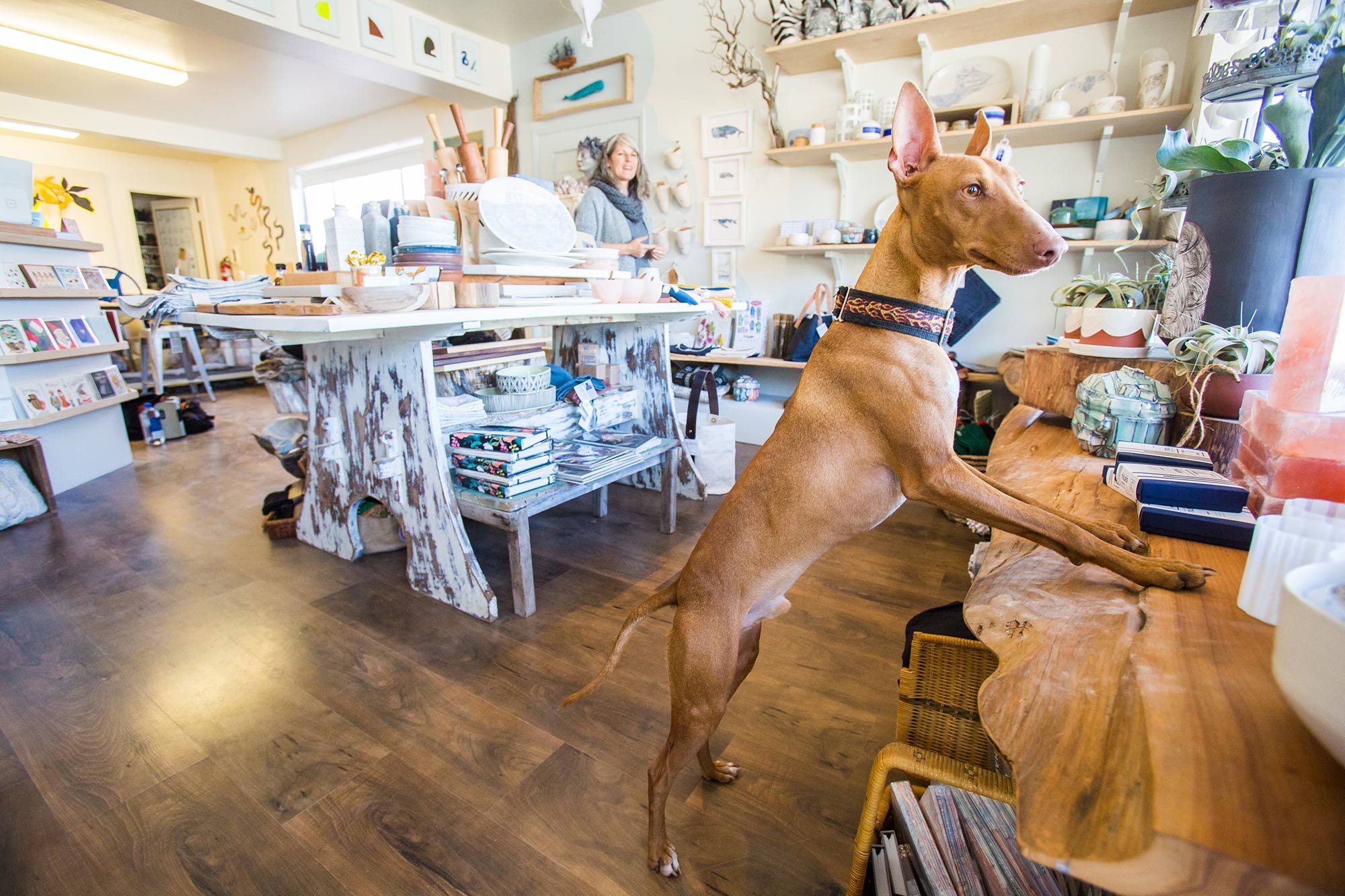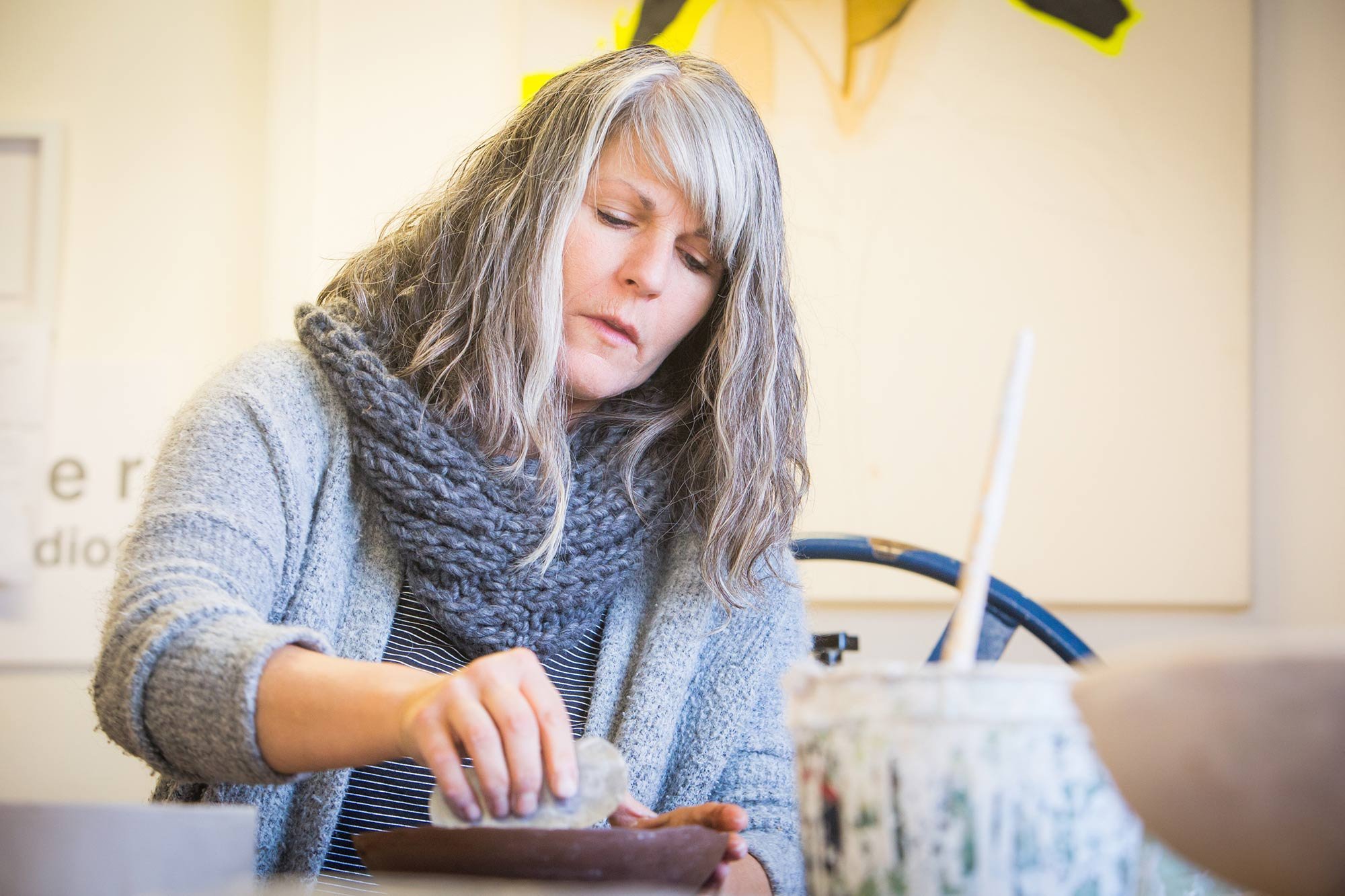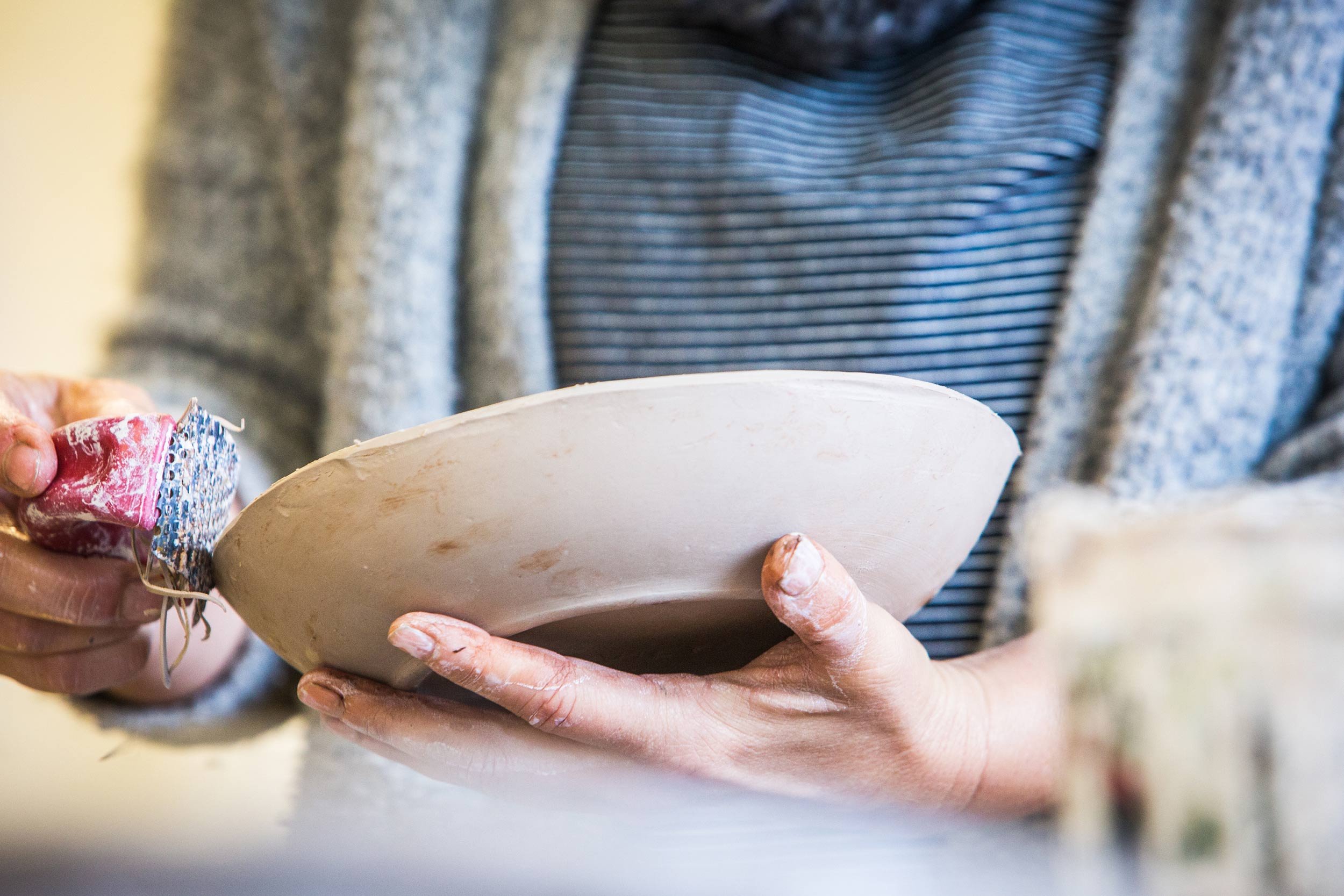“I shelved art for a long time and went and got a regular job because I was encouraged to get a regular job and not really do art. I never had that kind of encouragement. So I had a long, long path to get here because I didn’t think I could pull it off. …But I ended up coming full circle. I had to go around the bend a few times.”
— Linda Fahey

Linda Fahey, Yonder
Story and photos by Cat Cutillo
On Mondays, you’ll likely find Linda Fahey working in her shop even though it’s the one day of the week she’s closed. Fahey, a Pacifica-native, opened her brick-and-mortar business, Yonder, on Reina Del Mar Avenue two years ago. The shop is both her working art studio and a retail business where she showcases her own ceramics, watercolors and curates the shop with work from other artists.
She leaves work most nights…to go home and work.
“A lot of people are interested in this lifestyle of making,” says Fahey, who will go through 1,500 pounds of clay in 10 weeks. “It’s still a job and it’s an awesome job and I would not want to sit in a cube ever again. But its still work. And you’ve got to work really hard. I work harder now than I’ve ever worked at any job I’ve ever had,” she said. “But I love it.”
Fahey’s ceramic creations draw inspiration from the coastal palette’s muted tones she lives with every day—clean whites, raw woods and accented ocean blues. Her process is farm-to-table in the art sense. She hand-builds the clay, hand-paints all illustrations on the ceramics and hunts down the driftwood she sometimes fuses into her work.
“I’ve picked up driftwood all my life. We all do (who) live on the coast. Everybody has a piece of wood floating around,” says Fahey.
She thinks about the story behind each piece of wood.
“Often I remember exactly where I picked them up,” says Fahey. “They’re all like little people. They’re all really different. Something in the look. Sometimes they’re weird and I like them to be weird. Like this is probably a boat or fence wood because it’s been cut,” she says, holding up an unused piece of driftwood.
And like the wood she collects, there is a story behind Fahey too.
Four years ago, she was sitting in a cubicle at Genentech working a full-time job in project management. She worked on her art on the side out of a transient studio space. Then she got laid off. Instead of looking for another job, Fahey decided to take a pause and focus all her energy on her art. A month into that decision, noted retailer Anthropologie, which Fahey had not pursued, contracted her to make 2,000 of her specialty driftwood spoons.
“I walked around my house for half an hour because I could not sit down. I couldn’t believe this was actually happening,” recalls Fahey of the initial call from the international brand.
The project solidified Fahey’s decision to pursue her art full-time.
“I felt like that was a good signal to me,” says Fahey. “I was prepared to jump all the way in the pool, take a chance, see if I could pull it off. I had no idea how it was going to go. I had no idea at all. This (shop) wasn’t even a thought at the time,” she said. “And so I just dove in.”
Now, four years later, Fahey is facing a good problem: She has too much work. With only one part-time production assistant, worldwide wholesale orders to fill, an ongoing relationship with Anthropologie, art exhibitions and much-needed stock to make for her store, Fahey is asking herself a question.
“How do you keep the integrity of the small maker and grow? Otherwise you stay the same size forever,” says Fahey, whose creations are very labor-intensive. In fact, there are 26 steps to making just one cup. She is considering her growth options, which include hiring a production team to make her work while she oversees everything as the master designer or slipcasting her work by producing molds to increase productivity while still hand-painting the work herself to keep the pieces unique.
She’s noticed she’s not the only one standing at a crossroads. Her hometown of Pacific is also changing.
“The people that grew up here often learned to go over the hill to buy everything. Generationally, they’ve been doing that so they’re not ready to walk around their town,” she says. “But the people that are moving here. We have a lot of people moving here. They want to eat in their town and shop in their town and hang out in their town,” says Fahey. “It’s definitely changing in a good way as far as I’m concerned,” she said. “It’s good and bad when a town grows. But I have this concept of growing with your town.”
Despite the fact that the shop’s foot-traffic has slowed down her production, she welcomes those interruptions.
“One of the most important things to me about the store is the conversations I have and meeting people,” says Fahey. “I get to talk to people and I can have 30-minute conversations or three-minute conversations but I meet really extraordinary people and I love that about having the store. It’s my favorite thing about it.”
And perhaps one of the most important exchanges to Fahey is the encouragement she passes on to other artists who visit her at the shop.
“I shelved (art) for a long time and went and got a regular job because I was encouraged to get a regular job and not really do art. I never had that kind of encouragement. So I had a long, long path to get here because I didn’t think I could pull it off,” says Fahey. “But I ended up coming full circle. I had to go around the bend a few times.”
Against the Tide: Linda Fahey


